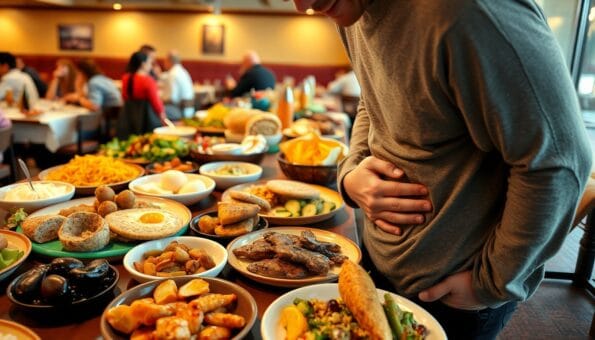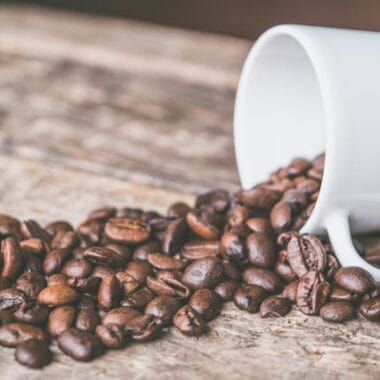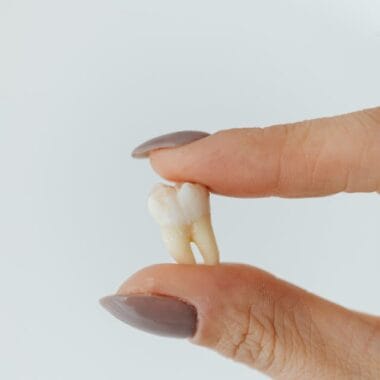A Heavy Meal can be a very tempting experience, offering an endless variety of foods to indulge in. Whether it’s breakfast, lunch, or dinner, buffets present an opportunity to try new dishes, flavors, and combinations. However, consuming large portions in one sitting can have significant effects on our bodies. Understanding how the body processes a heavy buffet meal helps us better navigate these indulgences without compromising our well-being.
In this article, we’ll explore the immediate and long-term effects of overeating at a buffet and provide practical tips to reduce discomfort and boost digestion.
1. Immediate Effects of a Heavy Buffet Meal
Digestive Overload
When we eat a large meal, our stomach has to work harder to break down the food. The process begins as food enters the stomach, which expands to accommodate the meal. However, when the stomach is overloaded, digestion slows, and it can take several hours to process the food fully. The result? You may experience discomfort, bloating, and a sense of fullness for hours after finishing the meal.
Blood Flow Diversion
Digesting a large meal requires energy, and the body responds by redirecting blood flow to the digestive system. This diversion leaves less blood available for other functions, leading to feelings of lethargy or what’s commonly referred to as a “food coma.” This effect is even stronger when the meal includes high amounts of fat, carbohydrates, or sugary foods.
Hormonal Impact
Eating a large meal, especially one high in sugar and carbohydrates, triggers a release of insulin—a hormone that helps regulate blood sugar. After a heavy buffet meal, insulin levels spike to handle the excess glucose, which can result in an energy crash later on. This response can leave you feeling sluggish and fatigued as your body tries to stabilize blood sugar levels.
2. Impact on Energy Levels and Focus
After a heavy buffet meal, you might feel like taking a nap or find it difficult to concentrate. This is due to the body’s focus on digestion, which diverts energy away from cognitive functions and other activities. This sluggish feeling is particularly common after meals high in carbohydrates, as these foods are quickly converted into glucose, which spikes blood sugar levels and subsequently leads to an energy dip.
Why We Feel Sluggish or Tired
Post-meal fatigue happens because our body prioritizes digestion over activities that require alertness and mental clarity. As the body works to break down a large meal, it uses energy reserves that might otherwise be used to keep us active and alert. This feeling of tiredness can last for several hours, depending on how much food you’ve eaten and the balance of nutrients in the meal.
3. The Role of Insulin and Blood Sugar Spikes
Insulin Response to Overeating
When we eat large amounts of carbohydrates or sugary foods, insulin is released to manage the influx of glucose into the bloodstream. However, when there’s too much glucose, the pancreas produces more insulin than usual, leading to a rapid uptake of glucose by cells. This can cause a drop in blood sugar levels, resulting in a feeling of tiredness or “sugar crash.” This cycle of high insulin followed by a sugar crash can also lead to cravings for more sugar or snacks.
Consequences of Blood Sugar Spikes
Frequent overeating can lead to consistently high blood sugar levels, which can increase the risk of insulin resistance over time. Insulin resistance means that cells no longer respond as effectively to insulin, which can lead to increased blood sugar levels and potentially the development of type 2 diabetes. Therefore, it’s essential to be mindful of large meals, particularly those high in sugars and refined carbohydrates.
4. Bloating and Stomach Discomfort
Why Heavy Meals Cause Bloating
Bloating and discomfort are common after a heavy buffet meal. This sensation is caused by the combination of a high volume of food and the presence of foods that may be hard to digest, like fatty dishes, fried foods, or carbonated drinks. When we overeat, our stomachs can’t empty as efficiently, leading to gas buildup and bloating.
Digestive Impact of Food Combinations
Buffet meals often include a mix of proteins, carbohydrates, and fats, which require different enzymes and digestive processes. When these foods are consumed in large amounts, digestion can slow further, causing discomfort. For instance, proteins require acidic conditions, while carbohydrates need a more alkaline environment, so consuming both in excess can overwhelm the digestive system and lead to further bloating and gas.

5. Effects on Metabolism and Excess Calorie
Strain on Metabolism
A heavy meal introduces an abundance of calories into the body. If these calories are not used immediately, they’re stored as fat. Over time, consistently consuming large portions can lead to weight gain and strain the body’s metabolism. The body may start storing more energy as fat, leading to potential health issues like obesity.
Risk of Calorie Overload
Buffet meals often contain calorie-dense dishes like fried foods, desserts, and rich sauces, making it easy to consume hundreds or thousands of extra calories in a single sitting. If we make this a habit, it can lead to increased fat storage, higher cholesterol levels, and a slowed metabolism, all of which contribute to weight gain and other health concerns.
6. How the Body Clears Out Toxins
Liver and Kidney Detoxification
After a heavy meal, the liver and kidneys work harder to process and eliminate toxins, including excess fats, sugars, and sodium. The liver metabolizes these substances, while the kidneys filter waste from the blood. However, a high-fat meal can slow down liver function, making it harder for the body to detoxify effectively.
Excess Sodium and Fats
Buffet meals are often high in sodium, which can lead to water retention and increase blood pressure temporarily. Additionally, excess fats require more bile for digestion, putting a strain on the liver. To help the liver and kidneys, it’s essential to stay hydrated and consume foods that support detoxification, such as leafy greens and antioxidant-rich fruits.
7. Tips for Easing the Effects of a Heavy Buffet Meal
If you’ve overindulged at a buffet, don’t worry. Here are a few tips to help your body recover and feel more comfortable:
- Drink Water: Hydrating after a heavy meal helps digestion and can reduce bloating.
- Take a Light Walk: A short walk can help stimulate digestion and reduce the feeling of lethargy.
- Include Fiber: Eating high-fiber foods like vegetables or whole grains at your next meal can help balance digestion.
- Skip the Next Meal if Needed: Giving your body a chance to recover can help avoid overeating twice in one day.
8. Practical Tips to Eat Mindfully at Buffets
Buffets can be overwhelming, so here are some practical tips to avoid overeating while still enjoying the variety:
- Portion Control: Start with small portions of each dish, giving you a chance to try everything without overloading.
- Balance Macronutrients: Choose a mix of proteins, healthy fats, and complex carbs to keep your energy levels stable.
- Choose Fiber-Rich Foods: Salads, vegetables, and whole grains can help you feel full without causing bloating.
- Slow Down: Eating slowly helps you tune in to hunger cues and avoid overeating.

Conclusion
Buffet meals are a great way to indulge and enjoy a wide variety of dishes, but eating too much in one sitting can impact digestion, energy levels, and overall health. From digestive overload and insulin spikes to the risk of bloating and calorie excess, it’s important to balance our enjoyment with mindful choices.
By staying mindful of portions, balancing food choices, and taking steps to support digestion afterward, we can make the most of buffet experiences without compromising our health. So the next time you face a tempting buffet spread, remember these tips and enjoy your meal with confidence.











